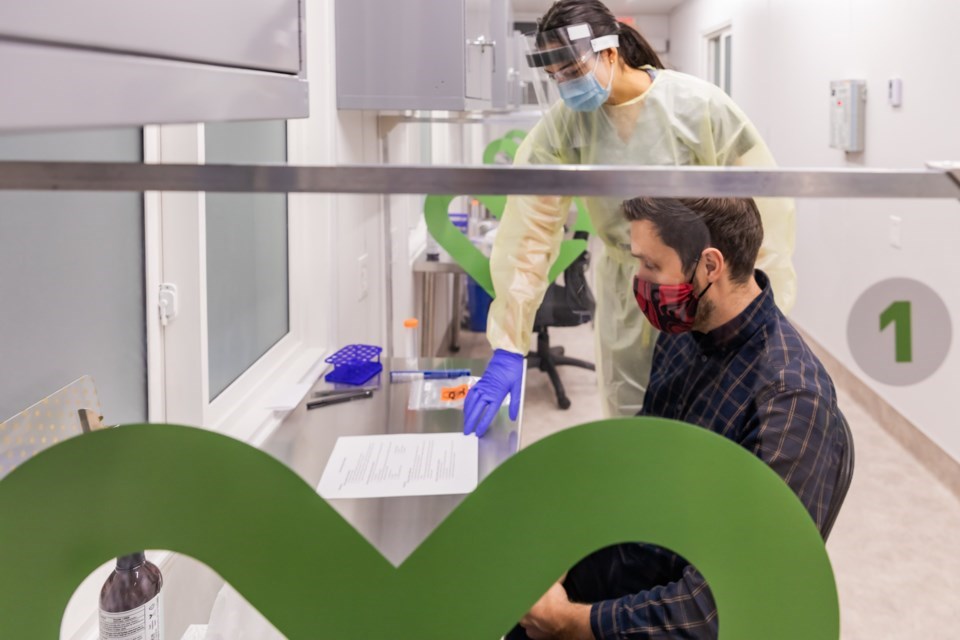It’s entirely feasible for rapid tests to be used on a wide scale at busy airports, in long-term care homes or other facilities, according to one of the principal investigators of Vancouver International Airport’s rapid test study.
“It’s not a silver bullet or anything like that, but it will be part of the solution for opening up our communities safely,” said Dr. Don Sin, a respirologist with Providence Health and a UBC medicine professor.
The voluntary program, launched at YVR in late November, is open to all departing domestic passengers on WestJet flights.
The rapid antigen tests are administered via nasal swab, and have proven to be “extremely reliable” in getting results out within 15 minutes, said Sin.
About 350 passengers have been tested so far through the program, which runs until the end of February, said Sin. If a passenger tests positive, they are denied boarding and are quarantined, but so far, that hasn’t happened.
“All passengers tested negative on the rapid test, and we confirmed that using the hospital-based (PCR) test,” he said.
There haven’t been any complaints about the process from passengers, Sin added.
One of the goals of the study is to determine how many passengers may be asymptomatic at the time of travel. Initially, researchers thought the COVID-19 positivity rate would be about 1 per cent in passengers, but the study’s preliminary results show it could be around 0.0001 per cent.
The positivity rate “is going to be extremely low, certainly in domestic flights,” he said. “So, I think these kinds of screening measures will be more than sufficient to ensure the safety of travellers.”
While there can be a risk of false negatives with rapid tests, there’s emerging data to show they are good at identifying infectious individuals, said Sin, meaning the tests could be useful in areas such as airports or long-term care homes.
However, more data is needed before policy decisions can be made, he said.
Researchers are also working to develop an oral rinse rapid test as part of the study.
YVR and WestJet partnered with Providence Health Care and the University of British Columbia to conduct the study. Once it wraps up at the end of February, researchers will submit the results for publication in a peer-reviewed journal and share data with the public and health officials.



